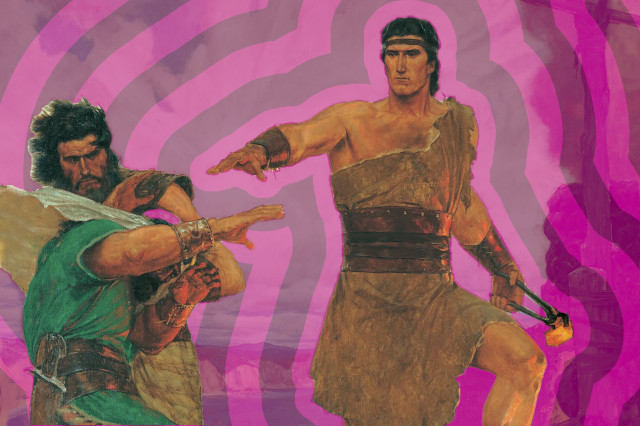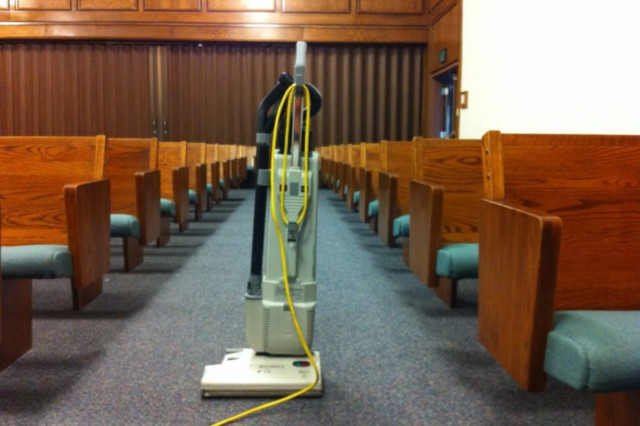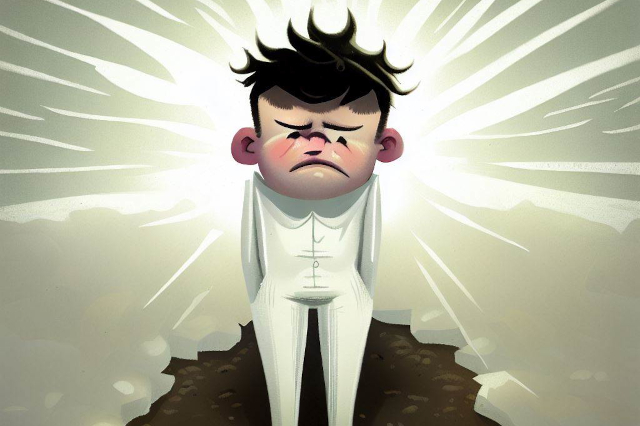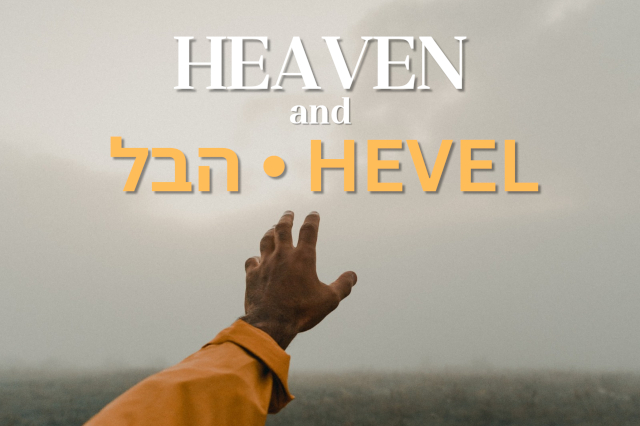
Finding the Atonement in a war chapter
I know most readers usually breeze through the war chapters, but there is a lot we can learn from them. For example, just the other day I found some really powerful lessons on the Atonement in Alma 44– the second chapter of Moroni's battle with Zerahemnah and the Lamanites. First, let's recap what's going on:
What happens in Alma 44
As I talked about in two previous posts here and here, Zerahemnah was a Nephite dissenter who riled up the Lamanites and started a massive war. As it became very obvious that the Nephites are about to win, Moroni stops the battle at the height of victory and offers Zerahemnah and the Lamanites very generous terms for a treaty. No punishment. No reparations. Just make a promise that you won't come back and start killing us again and you can go home.
The wiser part of the Lamanites happily jumps at this opportunity because:
- They don't die
- They weren't really all that into the war in the first place (which is why in 43:7 Zerahemnah had to continually remind them of why they were supposed to be so angry at the Nephites).
- Their peace covenant will hopefully serve as a good draft excuse next time their country wants to invade so they hopefully wouldn't have to face this mess again.
- Did I mention they don't die?
But Zerahemnah and the more hardened part of his army balk at Moroni's terms. Not the not dying part of course– just the "promise to never try to kill us again" part. So the battle resumes until Zerahemnah and the Lamanites are finally desperate enough to agree to the terms.
Likening it unto us
Here are the lessons I saw as I read these verses, and how they apply to the Atonement:
Sin is a war against God
Zerahemnah was in a very literal war against not just Moroni, but the whole Nephite nation. Fighting the very backbone and founding principles of the Nephite republic, the civilization, and Christianity in particular.
Likewise, when we sin, we are in a real sense battling against God and the first principle of the Gospel: obedience. That's why we feel guilty when we break His commandments– we are, in a sense, defecting to the other side.
God will wait until we are humbled to remind us of the terms of mercy
Moroni allowed the battle to continue until it was clear to Zerahemnah and his army that there was no way to win, and that they faced certain destruction if they would continue fighting. He waited until they would be receptive to hearing the terms of a peace treaty.
Likewise, after we sin, God waits until we have been humbled sufficiently to be receptive to hearing the terms of the Atonement. If like Zerahemnah, we are not really ready yet, God will let the humbling lessons continue until we are sufficiently humble and cry out to Him for help.
Mercy comes through the great sacrifice of another
To reach that point where Moroni could extend that offering of peace, there was tremendous suffering and great loss of life on both sides, including the death of many Lamanites and Nephites who were innocent of the crimes of Zerahemnah and his violent comrades. So many dead that they could not be counted (verse 21). In a sense, it was necessary for them to die in order to humble and prepare the Lamanites to be receptive to the terms of the treaty.
Not very hard to connect the dots on this one. To extend the terms of the Atonement to us required tremendous suffering and death. Not in the waters of Sidon but in the Garden of Gethsemane, and on the cross. It required the loss of the greatest, most innocent life that ever was lived.
The terms of mercy are simple
Moroni's terms were simple: promise not to return again to war and you will live. Otherwise, continue fighting and surely die.
God's terms of the Atonement are likewise simple: "Repent, that I may heal you," then "go thy way and sin no more." Otherwise, continue fighting and surely die spiritually.
The wise accept the terms of mercy readily
Some of the Lamanites accepted the generous offer and gratefully covenanted not to come again to war against the Nephites. And there was the added bonus that they wouldn't hopefully find themselves in that same predicament again.
Sometimes we also readily accept the conditions of the Atonement, grateful to be out of the spiritual peril we are currently in and happy to not face the same peril in the future.
Sometimes, we look for a nonexistent third option
When the terms of mercy were extended, Zerahemnah and the rest of the Lamanites chose to look instead for a third option. One that would allow them to continue breathing but also not require any change in their future behavior. They tried to justify their violence and complained that they were simply not capable of keeping such a covenant of peace anyway.
We sometimes do the same thing, looking for a third option where we can continue our rebellion of disobedience without the guilt. We use self-justification to bury our guilt. We try to minimize the impact of our sin, saying it's not really that bad. Or we finally throw up my hands and complain, "It's just too hard– I simply can't change." We try so hard to do the impossible– to turn our wickedness into happiness (Alma 41:10).
Obedience really is a life and death decision
Reading Zerahemnah's arrogant response to Moroni reminded me of a moment from my childhood. My siblings and I had tried to introduce my mother to our newest video game. We stood next to her, excitedly but frustratedly coaching from the sidelines: "Hurry, jump over that mushroom guy! No, that turtle is gonna get you! That plant is deadly!" Mom knew we thought pretty low of her video game skills when my younger brother finally blurted out as she fell down another hole, "What are you doing?! Don't DIE!"
When I read Zerahemnah's complaint about the terms of the treaty, I experience that same frustration. "How arrogant! Moroni's terms are more than generous! How can you say that keeping this simple covenant is impossible? You just don't kill people. Not that hard! Why would you choose death over the simple terms of obedience? The choice between life and death should be an easy one! What are you doing?! Don't DIE!"
And yet, prophets all over the Book of Mormon are telling their people (and by extension, us) the same thing: "What are you doing? Don't (spiritually) DIE!"
Here's that sentiment (in shortened form) from father Lehi:
Wherefore, men are free… to choose liberty and eternal life… or to choose captivity and death.
I would that ye should… choose eternal life…
… and not choose eternal death.
And his grandson Jacob:
Harden not your hearts; for why will ye die?
O be wise; what can I say more?
Or "the other Nephi" generations later chastising his people:
Ye ought to marvel because ye are given away that the devil has got so great hold upon your hearts.
Yea, how could you have given way to the enticing of him who is seeking to hurl away your souls down to everlasting misery and endless wo?
O repent ye, repent ye! Why will ye die?
They're all saying the same thing: "What are you doing? Don't DIE!" Because in the end, obedience really is a life and death decision.
The end result is known, but we are allowed the freedom to decide how we fit into that end.
Zerahemnah had already relinquished his weapons of war to Moroni when he rejected the terms of the peace treaty. But Moroni returned his weapons to him and said simply, "Behold, we will end the conflict." Even though Zerahemnah had rejected the generous offer of peace, and angered Moroni with his stubbornness, Moroni granted him the tools to continue his rebellion. Both sides really knew that the Nephites would inevitably be victorious, but Zerahemnah was free to fight as long as he chose.
Likewise, God always allows us to retain our agency to use as we choose– even when we use it as a weapon of rebellion. It will never be taken away from us. We always know there will be an end to the conflict. The question is, which side will we be on when that triumph is won? The choice is ours– no one stands in our way.
Don't be Zerahemnah
We like to liken ourselves to Nephi, Ammon, or the brother of Jared. We like to teach the inspiring examples of faith and deliverance. But negative examples are powerful teachers as well. In this case, we have a lot to learn from Zerahemnah. To one degree or another, we all at times find ourselves locked in a losing battle with God over our favorite sins. The terms of mercy are extended to us. Hopefully, next time that opportunity comes around in my life, I will accept them quickly and gratefully.







